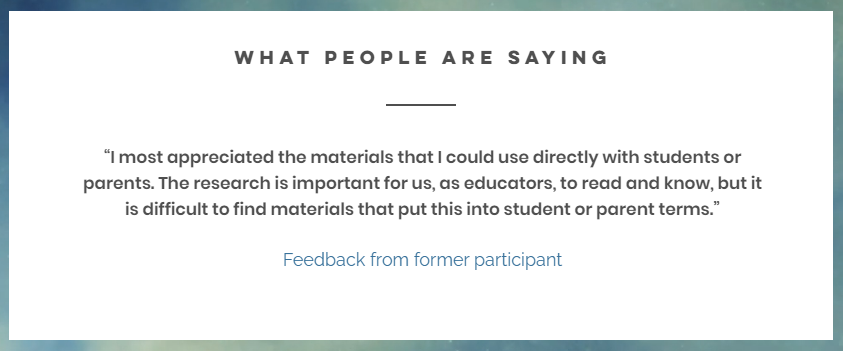Register Now for Trauma-Informed Education Course!
- Christine

- Jan 25
- 3 min read
Once again, Cowart Trauma Informed Partnership
will be offering its 45-hour course in
Trauma-informed Education!

In partnership with


Teachers may earn 3 A+ credits!
This class is an in-depth exploration of how
trauma-informed approaches can be
successfully implemented in classrooms!
Have you ever thought:
"I know about trauma, but I don't know how to help my students who have experienced it. I certainly don't want to make it worse."

This course goes well beyond an introductory understanding, and will equip you with tools you can use in your classroom right away.
Though presentations, selected readings and multi-media sources, written activities, and discussions, this course will examine trauma and its possible effects on students and teachers, and provide participants with ways to intervene against harmful effects. The course will explore the research on toxic stress, and explain how it can impact a child’s education. Grounded in an understanding of how structural racism and system-induced trauma impact education, it will explore the key principles of a trauma-informed approach, and how they can be applied in an educational setting to achieve equitable and just outcomes.
Participants will work with concepts that will help them lower stress levels of their students. This will have a direct impact on student health, well-being, and educational outcomes. Topics of this course will include:
Learning how to identify possible triggers in their classes, and how to mitigate them;
Identifying times when they interacted with a student that they now suspect may have been displaying symptoms of trauma, and develop alternative ways of handling similar situations in the future;
Exploring how multicultural identities can impact teaching and learning;
Avoiding the re-traumatization of students and helping them regulate their emotions and build resilience;
Addressing the power differentials that are at play in a classroom, and how privilege impacts relationships;
Understanding the difference between: intent and impact; and equality and equity;
Identifying common institutional beliefs that contribute to inequities;
Learning how to de-escalate situations and help students better regulate their behavior;
Considering the merits of universal trauma screening in schools;
Modifying the physical space of their classrooms based on trauma-informed principles;
Examining school discipline policies through a trauma-informed lens and how to interrupt the “school-to-prison pipeline” through which students with disabilities and students of color experience disproportionate disciplinary measures; and
Critically evaluating/constructing lessons centered on sensitive topics including immigration and race from a culturally- and trauma-sensitive perspective.
Course Details
This is a 10-week, 45-hour course. New York City DOE teachers may earn 3 A+ credits for successful completion of this course.
The course will be delivered remotely on-line, through Google Classroom.
The first four sessions of the course will be delivered asynchronously (you work at your own time and pace, with work due on a set schedule), with instructor facilitation and forum discussion encouraged.
The remaining two sessions will be virtual, real-time sessions, at which attendance is mandatory.
Each of the first four sessions will include a pre-recorded presentation and a variety of the following:
Selected readings and multi-media sources for participants to review;
A quiz on the material presented; and/or
Questions, activities, or writing assignments that require participants to apply the materials covered to their classes, schools, or lessons.
Course Schedule
Course Begins and All Materials for First Four Sessions Released: March 8, 2025
Session 1 Assignments Due: March 21, 2025
Session 2 Assignments Due: April 4, 2025
Session 3 Assignments Due: April 18, 2025
Session 4 Assignments Due: May 2, 3025
First Discussion Session: May 10, 2025, 9:00 a.m. - 12:20 p.m. Eastern Time
Second Discussion Session: May 17, 2025, 9:00 a.m. - 12:20 p.m. Eastern Time
NYC DOE Teachers: To receive full CTLE and salary differential credit for this course you must also register with ASPDP on their website. The ASPDP website will open for registrations on January 27, 2025. If you do not complete the ASPDP registration by the registration deadline, you will not be eligible for A+ or P credits towards your salary differential. If you have questions about using ASPDP courses towards the salary differential, please email ASPDP at ASPDP@schools.nyc.gov.



















Comments